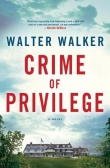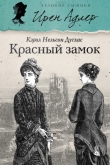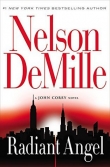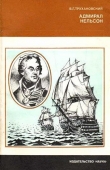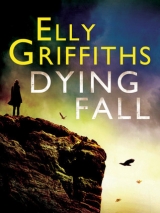
Текст книги "Dying Fall"
Автор книги: Elly Griffiths
Соавторы: Elly Griffiths
Жанр:
Триллеры
сообщить о нарушении
Текущая страница: 5 (всего у книги 20 страниц)
CHAPTER 9
Nelson thinks about Sandy’s last statement as he drives across Blackpool to his mother’s house, the house where he grew up. Welcome to my world. Does Sandy think that Nelson’s world does not include racists, arsonists and other unpleasant forms of humanity? Does he think that Norfolk is all about sheep-stealing? But Sandy mentioned Nelson’s recent cases, he must know that his old friend has been to some very dark places. He was probably just trying to wind him up. That would be like the old Sandy. One thing is clear though: the death of Ruth’s old friend Dan is starting to look very suspicious. He will have to ring her and let her know. He wonders what she and Katie are doing at this moment. He knows that Ruth and her archaeologist boyfriend have been on a boating holiday and (grinding gears) he doesn’t mind this in the least. Nevertheless, when he thinks of Ruth and Katie he always thinks of them on their own, walking on the beach or sitting in Ruth’s untidy cottage playing with educational toys given by Ruth’s trendy lefty friends. He smiles, vowing silently to buy Katie a toy gun for her next birthday.
Welcome to my world … The trouble is, Nelson is not sure which is his world any more. Being back in Blackpool is having a disorientating effect. On the one hand, as he said to Sandy, he feels about a hundred years old. The strain of the last couple of years – several murder cases, including two involving children, tensions at home and at work, a serious illness – sometimes he thinks it’s a miracle that he’s still functioning at all. On the other hand, as he passes through the familiar streets – the signs for the waxworks and the tower and the South Shore, the guest houses, their multi-coloured facades and cheerfully corny names (Funky Towers, Youanme, Gracelands) belying the desperation of their appearance – the continual delusional associations with New York (he passes three Broadway Diners in five minutes), the stalls selling barm cakes and chips with curry sauce … he can’t believe that a day has passed since he left the place. It’s as if on every street corner he might bump into his young self. Harry Nelson the gawky schoolboy in his hated grammar-school blazer, the swaggering youth with gelled-back hair, the young policeman fresh from his encounters with Fat Bernie and Sid the Greek. The sight, sound and smell of the town is in his DNA; how can he have stayed away so long?
Since he has been in Blackpool he has been plagued by this Jekyll and Hyde sensation. The place feels like home, everyone is friendlier here and motherly old ladies in shops call him ‘love’. Yet, at the same time, everything has changed. People look poor. They were poor in the old days, he supposed, but they seemed to be having more fun. He remembers Scotland Week, when the factories up north were closed and their inmates streamed down to Blackpool for their annual holiday. Those factory workers must have been poor but, by God, they used to enjoy themselves. Now there is a general sense of depression, even among the star-spangled posters for the Pleasure Beach and lookalike acts at the Grand Theatre. A few years ago there was great talk of regeneration, of building a super casino, Blackpool as the new Las Vegas but, as far as Nelson can see, this has come to nothing. About a third of the shops on the High Street are boarded up, and when he and Michelle wanted to eat out last night their choice was either chips or an American-themed pizza restaurant. He hates to think that he’s become the kind of effete southerner who can’t cope without his daily sushi fix but, all the same, a person can get tired of a carbohydrate-only diet. Jesus, he must be getting old.
On impulse he drives past his turn-off and follows the signs to Bloomfield Road. Since he last attended a football match the place seems to have become one vast car park, a concrete wasteland bordered by rows of terraced houses, all in the primary colours he remembers from childhood (when he first watched Balamory with his daughters he thought of Blackpool). He spots the ‘Donkeys Crossing’ sign that always makes him smile and a new Travelodge that seems to have sprung up next to the stadium. He is looking for the statue of Jimmy Armfield, his father’s hero, which was unveiled a few months ago. He finds it at the corner between the South Stand, the Jimmy Armfield Stand, and the hotel. Jimmy, nine foot tall and raised on a plinth, smiles into the distance, bronze foot on bronze football. Nelson parks by the kerb, gets out and touches the football boot for luck. A proper boot it is too, not one of these flimsy day-glo affairs (or, worse, white) favoured by modern players. You got out at the right time, Nelson tells the statue. You never got to see players paid half a million a week but still miss sitters from the ten-yard box. Your wife was probably just a wife, not a WAG in seven-inch stilettos. You never tweeted or blogged or appeared on I’m a Celebrity Get Me Out of Here. God bless you, Jimmy.
The bronze figure smiles kindly down on him. Nelson gets back into his car and drives back to his mum’s house.
*
Lytham is a pleasant surprise. When Ruth drives along the promenade, the rain has stopped and the sun is sparkling in the puddles. They pass hotels, a lighthouse, a charming town square complete with floral clock, winding streets full of picturesque cottages. ‘Pretty,’ says Kate, who has just woken up. ‘Suburbia by the sea,’ says Cathbad, but he smiles to show that this is a joke.
Number One Beach Row turns out to be the end house in a terrace, white-painted with black eaves. It’s a fisherman’s cottage, situated just behind the coast road, with a tiny garden full of hollyhocks and giant daisies.
Andrea Vickers, a smiling woman with wispy grey hair, greets them at the door.
‘Welcome to Lytham,’ she says.
‘Thanks,’ says Ruth, straightening her aching back and breathing in the salty air. ‘It’s lovely to be here.’
It’s just as charming inside. In fact, it reminds Ruth of a house in a fairy tale. Everything is pretty and faded and slightly the wrong size. The sitting room has a rocking chair and a high-backed sofa covered in roses. In the kitchen, there are even three chairs at the round kitchen table.
Cathbad puts on a deep, growling voice. ‘Who’s been sitting in my chair?’
Andrea turns to Kate, who is staring, wide-eyed. ‘You’ll have to ask your daddy to read you that story.’
‘He’s not …’ begins Ruth but she’s not sure how to go on. It seems unnecessarily intimate to be explaining Kate’s parentage to a woman she has only just met. Across the room Cathbad grins at her. Ruth scowls back.
Upstairs it’s worse. Andrea throws open the door to a charming double with white-painted bed and matching wardrobe. ‘That’s for you two. Kate’s next door. It’s a lovely room for a little girl.’
Ruth smiles tightly but says nothing. The room next door has a pink bed and ballerina wallpaper. She hopes that Cathbad will be very happy there.
Back downstairs, Andrea explains the heating system and extols the attractions of Lytham. ‘There’s the park and the windmill and the lifeboat museum. And if you want adventure, Blackpool’s just up the road.’
Ruth doesn’t want adventure, she is quite certain of that. Lytham suits her – the average age of the inhabitants, as they stroll along the promenade later that evening, seems to be about eighty. The seafront itself feels old-fashioned, almost Victorian, a wide green verge with stuccoed hotels on one side and the sea on the other. Dominating the view is the huge black-and-white windmill. They walk towards it, enjoying the exercise after a day spent cooped up in the car. Kate runs along the grass, chasing the seagulls and Cathbad and Ruth follow at a more leisurely pace, Cathbad occasionally commenting on good energies and the psychic qualities of people who live within sight of the sea.
The windmill is shut, although a sign on the wooden steps announces proudly that it is open for an hour every afternoon. Kate is inclined to have a tantrum about this but Ruth bribes her with an ice cream. They walk back along the beach which is actually more of a marsh, with little streams making their way through waterlogged grass down to the sea. It reminds Ruth of the Saltmarsh. Fishing boats are moored above the tide line and seabirds peck their way across the mud. Across the estuary, they see houses, hills and, in the far distance, mountains.
‘What’s over there?’ asks Ruth.
‘Southport, I think,’ says Cathbad. ‘You can see as far as Wales apparently. That must be where those mountains are.’
Hadn’t Judy said something about Southport? thinks Ruth. She decides not to mention it.
‘I’d expected it to be more built up,’ she says. ‘You know, amusement arcades and piers.’
‘I think that’s what Blackpool’s for,’ Cathbad says. ‘This is nice, though. Peaceful.’
‘Yes,’ says Ruth. ‘That’s just what I want. A really peaceful holiday.’
CHAPTER 10
Lytham is a surprise; Pendle University is a shock. After the beauty of Pendle Forest Ruth was expecting something rather picturesque, but as she follows Clayton Henry’s directions through the back streets of Preston, her confidence starts to falter. She passes grim terraced houses, boarded-up shops, deserted mills and factories. Surely the university can’t be here? Even her own university, often described as the poor relation to the University of East Anglia, has landscaped grounds and an ornamental lake. She drives between Indian supermarkets and Polish bakeries. Preston may be multicultural but none of the cultures seems to be having a very good time. The brilliant saris of the women in the streets contrast with their glum expressions. It’s a cold summer’s day and many of them are wearing anoraks over their saris, heavy boots visible under the bright silk hems. It’s like a metaphor for the dampening effect of British life – or British weather.
How had Dan – urban, sophisticated Dan – fitted in here? Perhaps Fleetwood, where he lived, is a bijou artists’ quarter, full of antique shops and espresso bars. But he must still have driven in to Preston every day, past these depressed estates and cheerless parades. Dan, whose parents lived in an elegant town house, each floor crammed with books (Ruth went to a party there once when Dan’s parents were away). Dan, who sometimes wore a dinner jacket over jeans and knew the right way to eat asparagus. How had he coped with a place where the only cafe offers chips with prawn cocktail sauce? Well, maybe his colleagues were brilliant, witty sophisticates. And of course it was here, in the ‘frozen and inhospitable north’ that Dan had made his great find. That would have made up for anything.
The directions seem clear enough but Ruth gets lost several times, driving into deserted industrial estates and dead-end streets. She stops once to ask the way but she picks a man who doesn’t understand her and clearly thinks she’s rather frightening. At any rate, he backs away before she can finish her sentence. Ruth turns the map upside down, performs a thirty-point turn and retraces her steps. Surely a university would be hard to miss? She drives down another side road and sees a grim industrial building with the words ‘Sickers Tobacco’ painted in vast white letters on one of the walls. This can’t be it, can it? It is. A small sign welcomes visitors to ‘Pendle University: A new way of learning’. Ruth learns later that the students’ nickname for the place is ‘The Fag Factory’.
Inside, the reception desk sits uncomfortably in a cavernous space, three storeys high. It looks like a prison, thinks Ruth; it even has those inner balconies running round the central atrium, linked by flights of wroughtiron stairs. All it needs is a suicide net. Ruth asks for Clayton Henry, thinking again how odd the name sounds. The receptionist, too, seems to find it strange.
‘Who?’ she asks, manoeuvring her chewing gum to the other side of her mouth.
‘Clayton Henry.’
‘What department?’
‘Archaeology.’
‘We haven’t got an archaeology department.’
Ruth stares at her. For one moment she thinks she has imagined the whole thing – Dan dying, Clayton’s invitation, the Raven King, the lot. But Andrea Vickers had seemed to know Clayton Henry quite well (‘He’s quite a character’) and Ruth has an email from him, with directions, printed out in her pocket.
This last provides the clue. At the bottom of the email are the words ‘History Department’. The receptionist reluctantly concedes that such a department exists and puts through a call. ‘Mr Henry? Visitor for you.’ She then puts down the phone and goes back to her gum, ignoring Ruth altogether.
There is nothing Ruth can do but wait, hoping the message got through to someone. She walks around the atrium which is decorated – if that is the word – by posters advertising the work of the engineering and chemistry departments. Underground piping, laboratories, men in hard hats, women in white coats. There is no sign that anything as effete as history – much less archaeology – is even taught here.
‘Ruth!’ A figure is scurrying down one of the iron staircases. Ruth looks up to see a smallish, plumpish man coming towards her, both hands outstretched.
‘Mr Henry?’ she says.
‘Clayton. Please.’ He takes her hand in both of his. For one horrible moment she thinks he might be about to kiss her. ‘So good of you to come.’
‘That’s OK.’ Ruth extricates her hand.
‘How do you like Andrea’s cottage?’
‘It’s lovely,’ says Ruth. ‘Lytham’s very pretty.’
‘Lytham? I’ve seen Stone Age burial mounds that are livelier than Lytham.’ He laughs heartily. Ruth smiles. She is surprised to hear him use the term ‘Stone Age’. An archaeologist would usually distinguish between Palaeolithic (old Stone Age), Mesolithic (middle) and Neolithic (new). She begins to suspect that Clayton Henry is not an archaeologist.
And once they are sitting in his cramped fourth-floor office she finds that her suspicions are correct. Clayton Henry is a historian, and head of a department that includes archaeology and anthropology as well as sociology and classical studies. Dan Golding, described by Henry as ‘one of our archaeologists’, was, in fact, their only archaeologist. ‘It’s only a module, you see,’ said Clayton Henry apologetically. ‘Not many people opt for it because it’s very demanding. Funnily enough, we’re thinking of changing the name to “forensic archaeology”. Kids go for anything with “forensic” in the title these days. Especially the girls.’
Ruth, a forensic archaeologist to her fingertips, looks disapproving. Forensic archaeology is a discipline in itself, not just a phrase to appeal to teenage girls who enjoy watching Silent Witness.
This explains, of course, why Henry was so keen to get Ruth up to Lancashire. It’s not so much a question of her being better than anyone in-house – there is no one else in-house. Ruth feels self-satisfaction seeping out of her. And Dan – not only was he an archaeologist in an obscure university, he was the only archaeologist in an obscure university. What had happened to her brilliant friend?
Clayton Henry puts on a concerned face to talk about Dan. ‘Such a tragedy. A lovely man. We’re all devastated. Did you know the family well?’
‘Dan and I were at university together,’ says Ruth. She feels uncomfortable discussing Dan with this stranger whose sad voice does not match his curious eyes. Besides, the Dan she knew was not Dan Golding, lone archaeologist at a university that used to be a cigarette factory, but Dan the Man, the piano-playing, Pernod-drinking student.
‘I never really knew his family,’ she says. ‘They must be in shock. It was such a terrible way to die.’
‘Yes, indeed,’ Henry allows his voice to fade away respectfully before launching, with evident relief, into the next topic.
‘Did Dan tell you anything about his discovery?’ he asks.
‘No,’ says Ruth. For reasons she has not explored, even with herself, she doesn’t want to discuss the letter, or its disturbing echoes, with Clayton Henry.
‘Well …’ Is it her imagination or does the head of department relax a little? ‘As I’m sure you know, there was a significant Roman settlement at Ribchester, not far from here.’
‘I’ve read about it,’ says Ruth guardedly.
‘Well, Dan’s excavations centred on a location a little way outside Ribchester,’ says Henry, settling cosily in his chair. ‘He was convinced that he had found the site of a temple dedicated to a god who was at once Celtic and Roman. That’s not uncommon, you know.’
‘I know,’ says Ruth.
‘Well, the really exciting find was under the temple altar.’ He pauses, enjoying the moment. ‘A stone sarcophagus containing human remains. The remains, Dan was sure, of a very important military man.’
‘What made him think that?’ asks Ruth, although she can guess.
‘The body was buried with ceremony, within the temple itself, and with funerary goods,’ says Henry. ‘But the really significant thing was the inscription on the tomb. Rex Arthurus. Britannorum Rex.’
He looks expectantly at Ruth, who is frantically working out the Latin. She wishes Max were here to translate it.
‘King Arthur,’ she says at last. ‘King of Britain.’
‘King of the Britons,’ corrects Henry.
There is a silence. In the distance, Ruth can hear somebody hoovering. Of course, it’s the holidays; there will be no students, only cleaners.
‘Did Dan really think it was King Arthur?’ asks Ruth. ‘The King Arthur?’
‘What do we mean by the King Arthur?’ asks Henry, sounding like a typical historian. ‘There are so many legends, very few historical facts. Documentary evidence for the post-Roman period is scarce. Arthur’s not even mentioned in The Anglo-Saxon Chronicle, for instance. Geoffrey of Monmouth writes about him in his Historia Regum Britanniae but that’s a very dodgy historical source, full of mythology and sheer imagination. There’s also a ninth-century Latin source, the Historia Brittonum. That depicts Arthur as a Romano-British king who unites the warring British tribes after the departure of the Romans. The Welsh Annals link Arthur to the Battle of Badon in about 516 AD. The dating of the temple would tie in with this. One interesting thing, though, neither the Historia nor the Annals uses the word “Rex” to describe Arthur. That would make our inscription unique.’
His Alan Bennett voice is as light as ever but Ruth thinks she can hear the excitement underneath. The tomb of King Arthur – or even the tomb of a man who might be King Arthur – would be the biggest thing ever to happen to Pendle University, and to Clayton Henry. In fact, Ruth is surprised that Henry has not already alerted the press. She is sure that if Phil found even a hint of a legendary British king, he’d be on Newsnight in two seconds flat. She asks the question.
For the first time, Clayton Henry looks really uncomfortable. He fiddles with his letter-opener – a rather ornate silver knife – and avoids meeting Ruth’s eyes.
‘It’s a bit sensitive,’ he says at last. ‘I wanted to make sure. Our department … well, our department isn’t that popular in the university.’
‘Why’s that?’
Clayton laughs though he still looks rather shifty. ‘Oh, probably just because I’m Yorkshire and this is Lancashire. The old Wars of the Roses stuff, you know.’ Ruth looks at him incredulously and Clayton must feel the inadequacy of this explanation because he says, still not meeting her eyes, ‘History doesn’t bring in much money. There are always people who’d like to see us replaced with something sensible like metallurgy.’
‘But if you made a really big discovery …’ says Ruth.
‘Exactly.’ Clayton Henry looks up with almost painful eagerness. ‘If this did turn out to be the real thing, we’d be made. Press, TV, conferences. It’d put Pendle on the map all right. But if I went public with it and the bones turned out to be a hoax, I’d be a laughing stock. That’s why I wanted you to look at them.’ Now he does look at Ruth. His eyes are a very clear blue, almost childlike,
‘I’d be happy to look at them,’ says Ruth. In fact, she can hardly wait. This could be the biggest find of the decade and she is right there, the first archaeologist on the spot. After Dan, of course.
‘I can take you to the site now, if you like,’ says Henry. ‘The bones aren’t still there. We’ve moved them somewhere safer.’
Ruth wants to ask if the bones have been excavated with due care but realises that this would sound insulting. All the same, she wishes that she had been able to supervise. One false move, one mistake in recording and an entire excavation can be ruined. She would have taken days over this – cataloguing, examining the context, just looking. As Erik always said, ‘First, you look. Look as long as you like. You won’t get that first sight again.’
‘Did Dan send any samples for analysis?’ asks Ruth.
‘Yes, he sent samples off for carbon 14, isotopic testing and DNA. We haven’t had the results yet.’
Again, Ruth feels a thrill of excitement. Who knows what the results might show? And she will be the first to see them.
‘The temple,’ she says. ‘Who was it dedicated to?’
‘A strange deity,’ says Henry. ‘A version of the Celtic god Bran, which means …’
But Ruth knows what it means. Bran means Raven.
The Raven King.


